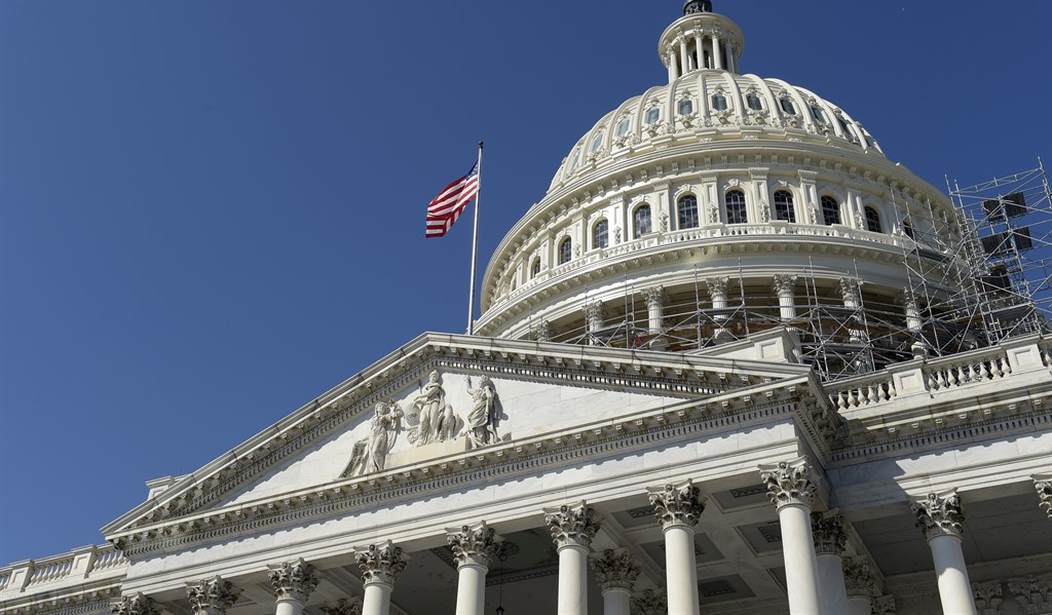American exceptionalism has become part of the country's creed. Like so many other unique aspects of this continental power, it was first noted by foreigners, who seem able to discern things about us that we natives don't notice.
It happens again and again. In his classic study "The Anatomy of Revolution," Crane Brinton summed up the swings of the pendulum that characterize revolutions in the modern age. He spoke of a series of successive shock waves that go from hopeful beginning (see the Arab Spring or the Russian Revolution, when a statesman like Alexander Kerensky was leading it) to the usual Reign of Terror. Then the revolution reaches the end of its arc (Thermidor) and history's pendulum begins to swing back. New tyrants succeed the old, and it isn't always easy to tell the difference. Except that the new commissars may be crueler than the old czars, or the new generals more beneficent than the old tyrants.
Our revolution was different. Instead of continual revolution-and-reaction, the Founders sought an ordered liberty, one that would confirm liberty in law. The result was a system that, with the notable exception of the Late Unpleasantness of 1860-65, has proven both flexible and stable despite challenges, changes and crises.
Our guiding principles have been the opposite of the fierce ideologies that divided and dominated other societies in the modern age and were not entirely unknown here. In Europe, those fanaticisms produced one totalitarian regime after another. Each may have had its own equal but opposite slogans and class appeals. But no matter how opposed in ideas, all shared a defining characteristic: power lust, as in Nazi Germany and Soviet Russia and their contemporary epigones.
Recommended
What explains the American difference? In a little book called "The Genius of American Politics," historian Daniel Boorstin emphasized the practicality of the American experiment. Our revolution, he concluded, was not based on grand theories of government but on institutions that slowly evolved, changing to meet changing circumstances -- and, above all, that worked.
A Frenchman named de Tocqueville suggested another, maybe the key, difference between our political history and that of other modern nations: the pervasive influence of religion. Unlike his native France, church and state were not in a constant contest here, each vying for control. They were separated. There would not be an official established church in this country, yet religion provided the essential context and informal discipline that restrained the lust for power of both government and the individual. There is separation of church and state but not government from religion. It's a key distinction. Or as John Adams once observed, "We have no government armed with power capable of contending with human passions unbridled by morality and religion. ... Our Constitution was made only for a moral and religious people. It is wholly inadequate to the government of any other."
Edmund Morgan spent a lifetime studying and writing about colonial America and the distinctive revolution it would produce. He had begun his academic career as a student under the guidance of Perry Miller at Harvard, the great scholar of Puritan America who traced the American difference to the Puritan ethos. Professor Morgan had studied and admired the elaborate Calvinist theology of Puritanism -- predestination, original sin, human depravity, divine perfection, salvation by grace, the goodness of God despite the presence of evil in the world (theodicy), and so intricately on, but he was no believer. All of that was just an abstraction to him, however elegant. "At 22," he would explain later, "most people did not look all that bad to me." And then he found himself in Germany on Aug. 28, 1938. Just as the Munich Crisis was about to unfold.
Young Morgan and a buddy happened to be in the border town of Breisach when the Nazi dictator, surrounded by a cohort of black-shirted storm troopers, passed through in an open touring car. What impressed the 22-year-old American was how ordinary Herr Hitler seemed. Long before the ever observant, ever theoretical Hannah Arendt came along.
Edmund Morgan had been struck by what Ms. Arendt would later sum up as the banality of evil. To him, Der Fuehrer "looked like my next-door neighbor or a friend of the family, perhaps a bit old-fashioned but solid." He never forgot that indelible moment. Why? To quote his explanation:
"Puritan theology began to make sense, in a way that shook me. I could not believe in the salvation of a few held out by John Calvin or Jonathan Edwards, but human depravity suddenly acquired a face, the cheerful mask that we all learn to wear as the price of belonging to a settled social order. I was still an atheist, as I am now, but that day in Breisach I became a Calvinist atheist. Human beings are capable of great good, but I know that the capacity for fathomless evil is equally human, and it wears a smiling face."
It is this constant awareness of evil, of the danger of ideas and ambitions unrestrained by the humility and reverence that the fear of God induces, which is the great legacy of our Puritan inheritance, much as it may go unnoticed today. And that difference may well explain the difference between our history and that of less blessed lands.

























Join the conversation as a VIP Member